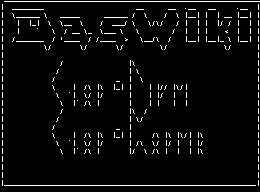- Das Wiki
- zsh.md
- zoneminder.md
- yubikey.md
- yasnippet.md
- xprofile.md
- xmonad.md
- wpa_supplicant.md
- wp3.md
- windows.md
Menu (Edit):
Link List (Edit):
# ____ _ _ ____ _
# / ___|(_)_ __ ___ _ __ | | ___ | _ \ __ _ _ __ ___(_)_ __ __ _
# \___ \| | '_ ` _ \| '_ \| |/ _ \ | |_) / _` | '__/ __| | '_ \ / _` |
# ___) | | | | | | | |_) | | __/ | __/ (_| | | \__ \ | | | | (_| |
# |____/|_|_| |_| |_| .__/|_|\___| |_| \__,_|_| |___/_|_| |_|\__, |
# |_| |___/
Simple Parsing
Why someone has not thought of this before now, is a mystery.
It is uncertain how the package simple-parsing made it on our radar, but since it’s discovery how we program Python has changed indefinitely, and has become much easier. Simple Parsing makes both writing arguments and reviewing them, much more intuitive and understandable. It also makes argument parsing much more flexible, which allows it to be used in situations where complexity of arguement parsing is a necessity.
Simple Simple Parsing
We did not arrive on the scene until after the simple use case api was released, and until this moment, it has managed to handle nearly everything we have thrown at it. It is a must learn for anyone interested in beginning to program python, as it will dramatically simpify and ease the process of coding.
 Anoduck's Das Wiki
Anoduck's Das Wiki